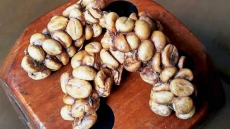In what appears to provide new hope for people infected with the deadly Ebola virus, scientists have successfully treated all the Ebola infected monkeys with an experimental drug called Zmapp.
All 18 monkeys in the study recovered from the infection, without showing any lingering effects of the disease, the researchers said.
"It is an important step forward in the fight against Ebola virus," said study co-author Gary Kobinger, chief of special pathogens at the Public Health Agency of Canada.
The drug was found to be effective even when it was administered very late.
On the basis of these results in monkeys, several human patients had recently received the latest drug, Live Science reported.
In the study, the researchers administered the drug every three days to monkeys infected with Ebola.
Some monkeys received the treatment starting on either day three or four after they were infected with the virus, and some even started the treatment on day five, when the animals were only days from reaching the end.
The drug contains three antibodies, which are molecules that can bind to a foreign protein.
The treatment reversed severe symptoms of the Ebola disease, such as bleeding and rashes.
So far, the World Health Organisation (WHO) has recorded 3,069 cases of Ebola virus disease and 1,552 deaths in West Africa (Guinea, Liberia, Sierra Leone and, to a lesser extent, Nigeria).
The number of people infected with the Ebola virus could reach 20,000, six times more than the current estimates, the WHO warned Thursday.
The study appeared in the journal Nature.





